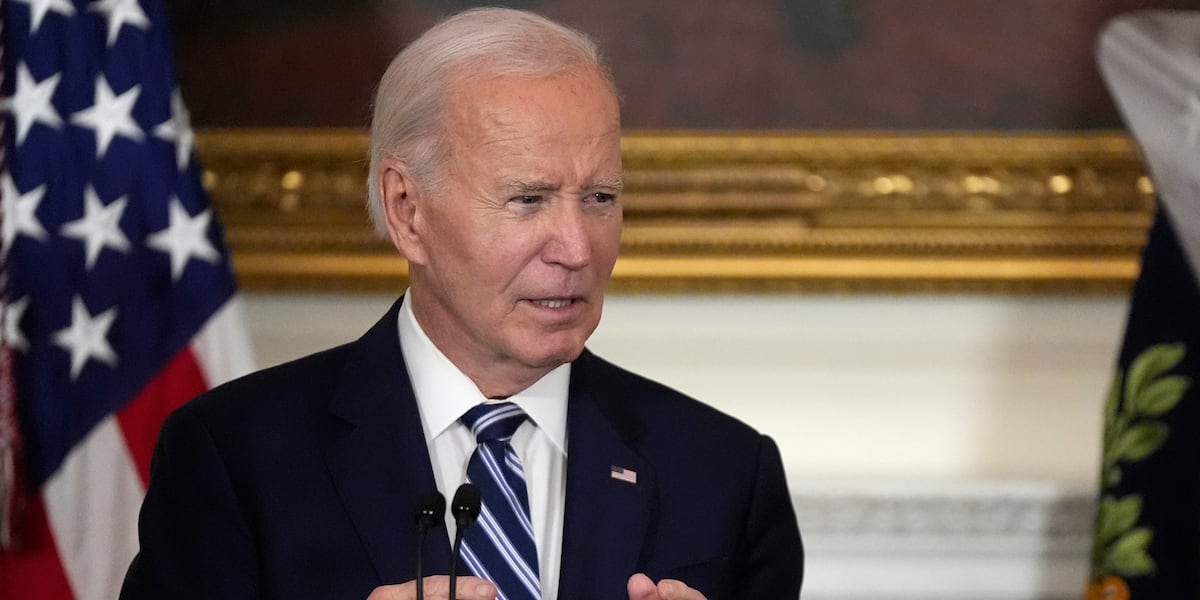BISMARCK — North Dakota Gov.
Kelly Armstrong
is exercising his right to line-item veto legislation as six bills were substantially changed — one of them twice — on Monday, May 19, while undergoing final approval.
The state constitution gives the governor the authority to veto a portion of long budget bills, a power typically reserved for cutting spending items.
In over half of the veto letters, Armstrong emphasized that parts of budget bills pertaining to policy changes, not direct appropriations, should not be immune to line-item vetoes.
Allowing
the Legislature
to “shoehorn” policy into budget bills “undermines” the system of checks and balances and violates the “longstanding principle of separation of powers,” Armstrong wrote.
Among the six line-item vetoed bills was the state’s Ethics Commission budget. Armstrong eliminated a section granting lawmakers immunity from prosecution if they disclose conflicts of interest in voting on a bill.
“Public confidence in government is built on the belief that no one, especially elected officials, is above the law,” Armstrong wrote in the veto letter.
He said the vetoed section, which isn’t attached to a specific appropriation, “sends the wrong message to North Dakotans: that legislative disclosure, however minimal or selective, is enough to avoid the legal consequences that any private citizen would face under similar circumstances.”
Under the attorney general’s budget, Armstrong vetoed a portion attempting to bar judges from being able to waive 24/7 sobriety program fees. The section was added to the budget at the last minute after the original, stand-alone bill to restrict judges’ authority failed.
Participation in the program, which has been in place since 2008, is often ordered by the court for people with drug or alcohol-related offenses.
“It (the addition) invites a constitutional challenge and will only increase the costs and jail overcrowding for counties,” Armstrong wrote in the veto letter.
He also cut a $150,000 grant that would have funded a Native American homelessness liaison position in the Industrial Commission’s budget.
He called for a long-term, statewide approach to
homelessness
and housing insecurity instead of “a piecemeal approach” that risks “fragmentation, inefficiency and duplication of effort.”
In the same bill, he scratched a section mandating the Bank of North Dakota allocate $250,000 to study post-oil economic development in western North Dakota communities.
He called the action premature, saying it sends the wrong idea about the “strength” and “longevity” of the state’s energy industry.
In the Parks and Recreation Department’s budget, Armstrong vetoed a section that would have required the agency to receive approval from the Legislature to rename state parks, a provision that also had no direct appropriation.
Such a requirement is so far-reaching, it could lead to unnecessary, top-level deliberation and “not only encroaches on the executive branch’s function to faithfully execute laws passed by the Assembly but also leads to absurd results,” the veto letter states.
Another $350,000 was taken out of the Department of Commerce’s budget that would have gone to the State Fair Association for sanitation restoration projects.
The funding wasn’t included in the State Fair Association’s individual budget, where Armstrong said it “rightly belonged.”
Further, the state Legislative Council will stay in its second-floor office in the state Capitol building in Bismarck after its bid to move to the 15th floor was rejected by Armstrong. The agency, which received funding for 25 more employees, oversees the Legislature’s operations and is staffed by attorneys, researchers and accountants.
Under the provision in the Legislative branch’s budget, the space occupied by the Department of Career and Technical Education would instead be used by Legislative Council. However, the Legislature neglected to consult with proper channels — namely, the public and the department itself, Armstrong wrote in his veto letter.
He said his administration is “more than willing” to help Legislative Council accommodate its growing staff.
“Requiring the acquisition of a specific floor of the Capitol building via state law is superfluous and undermines our ongoing efforts to find ways to better utilize the Capitol building’s square footage to reduce costs and save taxpayers money,” he added.
When the 2025 legislative session adjourned, lawmakers sent a total of 601 bills to the governor, 597 of which were signed, with four vetoed in their entirety — a
library materials bill,
a
private school voucher bill,
a
tax credit for prisons
and another impacting
state employee health insurance.
To overturn a governor’s veto, the Legislature would have to meet for a special session. Legislative leaders have not announced whether they will reconvene to push back on any line-item vetoes.
Budget bills go into effect on July 1. Policy bills take effect Aug. 1.
“Through limited use of my line-item veto authority, we’ve reduced spending, protected the integrity of the budgeting process and preserved executive branch authority to ensure that state government remains efficient and transparent,” Armstrong said in a Monday release.































